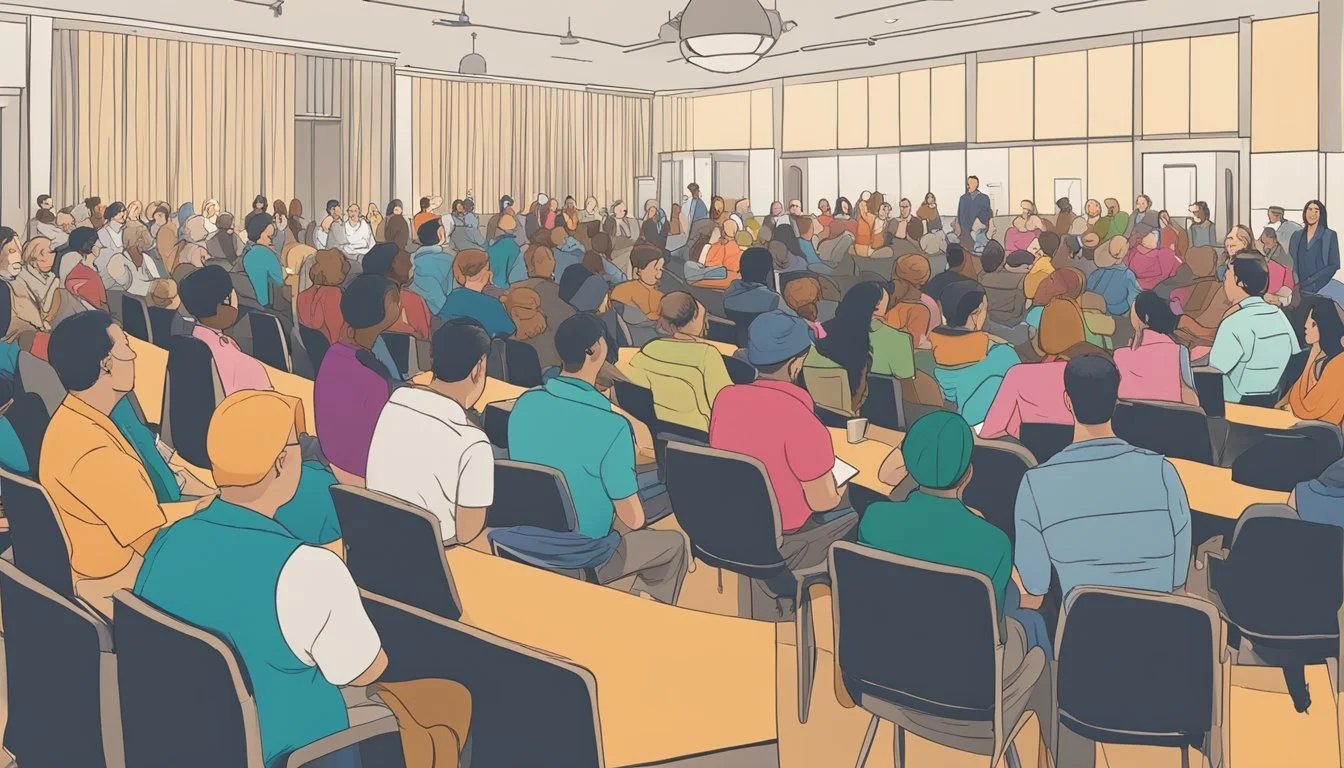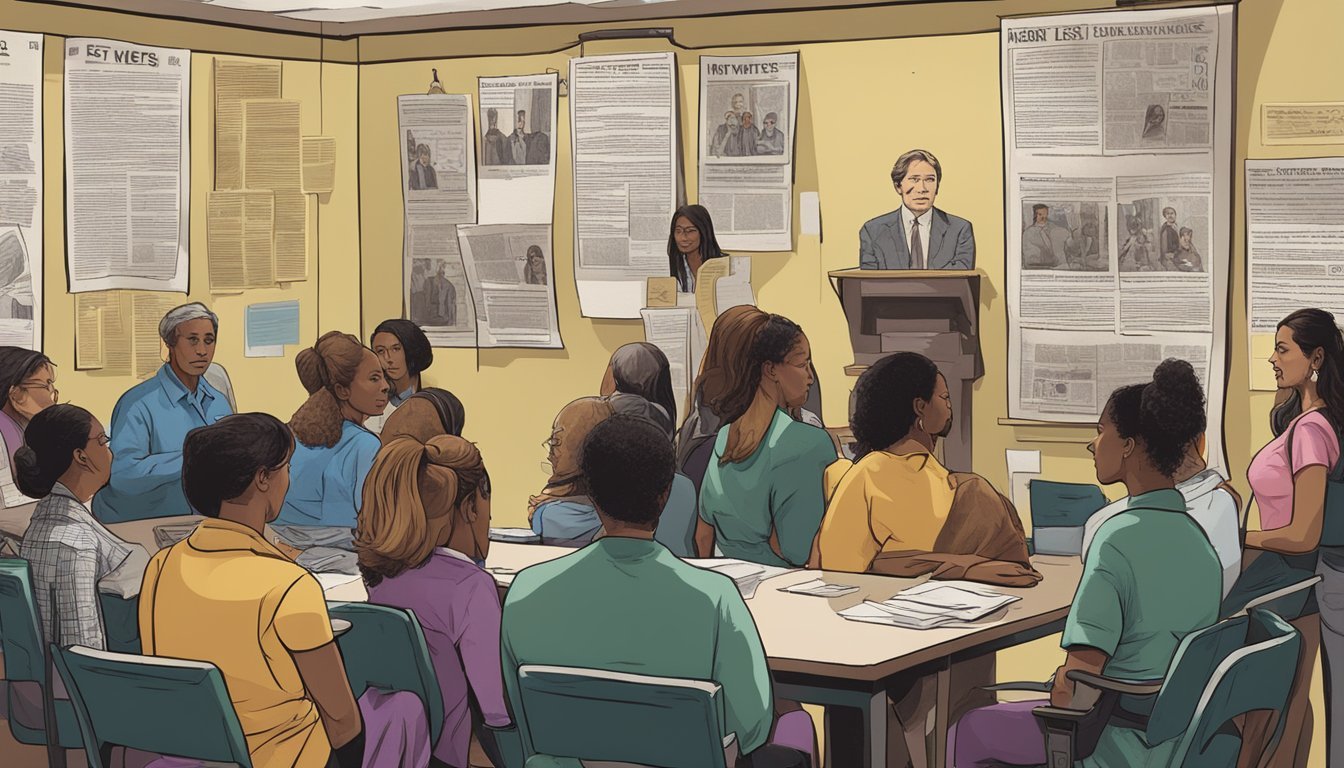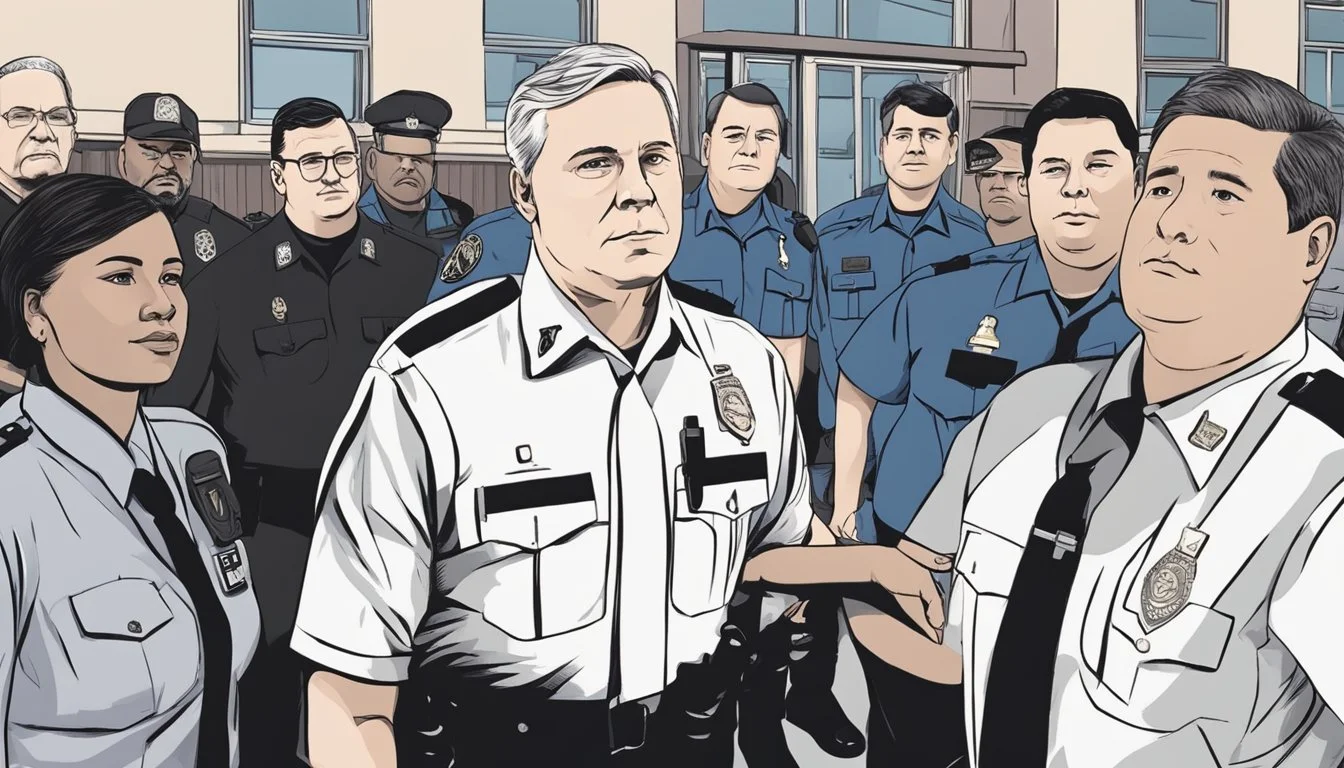Robert Lee Yates: 5 Spokane Sex Work Safety Initiatives Created After the Serial Killer's Capture
Protecting Vulnerable Communities
Robert Lee Yates terrorized Spokane, Washington from 1975 to 1998, murdering at least 13 women, many of whom were sex workers. His capture in 2000 sent shockwaves through the community and highlighted the urgent need for improved safety measures to protect vulnerable individuals.
In the aftermath of Yates' arrest, Spokane implemented several initiatives aimed at enhancing safety for sex workers and preventing similar tragedies from occurring in the future. These programs sought to address the systemic issues that had allowed a serial killer to operate undetected for so long, while also providing support and resources to those at risk.
1) Increased Police Patrols
After Robert Lee Yates' capture, Spokane authorities recognized the need for enhanced safety measures to protect sex workers. One of the primary initiatives implemented was a significant increase in police patrols in areas known for sex work activity.
Law enforcement agencies allocated more resources to monitor high-risk neighborhoods, particularly during nighttime hours. Officers were tasked with maintaining a visible presence to deter potential predators and provide a sense of security for vulnerable individuals.
The increased patrols also aimed to build trust between law enforcement and sex workers. Police officers received specialized training to approach interactions with sensitivity and understanding, encouraging sex workers to report suspicious activities or dangerous encounters.
These enhanced patrol efforts extended beyond simply driving through areas. Officers were instructed to conduct regular foot patrols, engage in conversations with community members, and establish relationships with local businesses to gather information and maintain situational awareness.
The goal of this initiative was to create a safer environment for sex workers while simultaneously deterring criminal activities. By increasing police presence, authorities hoped to prevent future tragedies and protect vulnerable individuals from potential harm.
2) Community Outreach Programs
After Robert Lee Yates' capture, Spokane implemented community outreach programs to support sex workers and improve their safety. These initiatives aimed to build trust between law enforcement and vulnerable populations.
One key program involved partnering social workers with police officers for street outreach. This team approach allowed for both immediate safety interventions and connections to social services.
Local organizations also expanded drop-in centers and mobile outreach units. These provided safe spaces for sex workers to access resources, health services, and support without judgment.
Education efforts targeted both sex workers and the broader community. Workshops covered personal safety strategies, reporting procedures, and available support services. Public awareness campaigns sought to reduce stigma and encourage reporting of suspicious activities.
Peer support networks were established to share safety information among sex workers. These grassroots efforts complemented official programs and helped reach individuals wary of authorities.
3) Safe Houses Establishment
After Robert Lee Yates' crimes came to light, Spokane recognized the urgent need for safe spaces for sex workers. This led to the creation of several safe houses throughout the city.
These safe houses provide temporary shelter and support for individuals engaged in sex work. They offer a secure environment away from the dangers of the streets.
The safe houses are staffed by trained professionals who understand the unique challenges faced by sex workers. They provide access to healthcare, counseling, and resources for those seeking alternative employment.
One notable safe house is Hope House on Third Avenue. It was established as a direct response to the vulnerabilities exposed by the Yates case.
These facilities operate with a non-judgmental approach, prioritizing the safety and well-being of their clients. They aim to reduce the risks associated with street-based sex work.
Safe houses also serve as connection points to other social services and support networks. This holistic approach helps address the complex needs of individuals in the sex industry.
4) Mandatory Safety Workshops
Following Robert Lee Yates' arrest, Spokane implemented mandatory safety workshops for sex workers. These sessions aimed to equip individuals with essential knowledge and skills to protect themselves while working.
The workshops covered various topics, including recognizing potentially dangerous clients and situations. Participants learned about safe meeting locations and how to communicate with trusted contacts.
Self-defense techniques were taught to help sex workers protect themselves in threatening situations. The workshops also provided information on local support services and resources available to those in the industry.
Law enforcement officials and experienced outreach workers led these sessions. They shared insights on common risks and effective safety strategies specific to Spokane's environment.
Attendance at these workshops became a requirement for sex workers operating in certain areas of the city. This initiative aimed to create a safer working environment and reduce vulnerability to violent crimes.
5) Collaboration with Advocacy Groups
After Robert Lee Yates' capture, Spokane saw increased collaboration between law enforcement and sex worker advocacy groups. This partnership aimed to improve safety and support for vulnerable individuals in the sex industry.
Local organizations like the Sex Workers Outreach Project (SWOP) Spokane began working more closely with police. They provided valuable insights into the needs and concerns of sex workers, helping to shape more effective protection strategies.
Community outreach programs were established to build trust between sex workers and authorities. These initiatives encouraged reporting of suspicious activities and potential threats without fear of legal repercussions.
Advocacy groups also played a crucial role in developing safety workshops for sex workers. These sessions offered practical advice on personal protection, risk assessment, and emergency procedures.
Joint task forces were formed to address systemic issues contributing to sex worker vulnerability. These groups focused on improving access to healthcare, addiction treatment, and social services for those in the sex industry.
The collaboration led to the creation of confidential reporting systems. These allowed sex workers to share information about dangerous clients or situations anonymously, enhancing community safety.
The Impact of Robert Lee Yates on Spokane
Robert Lee Yates's killing spree deeply affected Spokane, Washington. His actions between 1975 and 1998 resulted in the deaths of at least 11 women in the city.
The revelations of Yates's crimes shocked the community. Many residents struggled to reconcile the image of a seemingly ordinary father of five with that of a serial killer.
Yates's victims included students, sex workers, and individuals struggling with addiction. His targeting of vulnerable populations highlighted systemic issues within the city.
The prolonged nature of Yates's crimes, spanning over two decades, raised questions about law enforcement effectiveness. It prompted a reevaluation of investigative procedures in Spokane.
The case brought national attention to Spokane, often in an unwanted context. Media coverage focused on the city's darker aspects, potentially impacting its reputation.
Yates's arrest in 2000 provided some closure for victims' families. However, it also left lasting emotional scars on the community.
The aftermath of Yates's crimes led to increased awareness about personal safety in Spokane. It sparked discussions about protecting vulnerable populations and improving community support systems.
Sex Work Safety Policies Post-Capture
The capture of Robert Lee Yates led to significant changes in Spokane's approach to sex worker safety. Law enforcement, community organizations, and support services implemented new initiatives to protect vulnerable individuals.
Increased Law Enforcement Training
Police departments in Spokane implemented specialized training programs focused on sex worker safety. Officers learned to recognize signs of exploitation and human trafficking. The training emphasized building trust with sex workers to encourage reporting of crimes.
Key components of the training included:
De-escalation techniques
Trauma-informed interviewing
Referrals to support services
Officers also received education on the unique challenges faced by sex workers. This helped reduce stigma and improve interactions between law enforcement and the sex work community.
Enhanced Community Outreach Programs
Spokane developed targeted outreach programs to connect with sex workers. Mobile health clinics began offering free STI testing and treatment in areas known for sex work. Outreach workers distributed safety kits containing condoms, personal alarms, and information on local resources.
Community organizations partnered to create a 24/7 hotline for sex workers to report dangerous clients or situations. The hotline provided immediate support and connected callers to emergency services when needed.
Peer support groups formed to provide a safe space for sex workers to share information and resources. These groups helped build community and reduce isolation among vulnerable individuals.
Improved Support Services for Sex Workers
Spokane expanded its network of support services for sex workers seeking to exit the industry. New programs offered:
Job training and placement assistance
Substance abuse treatment
Mental health counseling
Housing assistance
A centralized resource center opened to provide easy access to multiple services. The center offered drop-in hours, allowing sex workers to seek help without an appointment.
Local shelters increased their capacity and tailored services to meet the specific needs of sex workers. This included trauma-informed care and safety planning for those at risk of violence.
Collaboration with Advocacy Groups
Following Robert Lee Yates' arrest, Spokane saw increased cooperation between law enforcement and sex worker advocacy groups. These partnerships aimed to improve safety and support for vulnerable individuals, while also influencing broader policy changes.
Partnerships with Local Organizations
The Spokane Police Department formed alliances with local sex worker support organizations. Together, they established a confidential reporting system for suspicious activities and potential threats. This allowed sex workers to share information without fear of legal repercussions.
Advocacy groups provided input on police training programs, helping officers better understand the challenges faced by sex workers. This led to more compassionate and effective community policing strategies.
Regular meetings between police representatives and advocacy groups fostered open communication. These discussions addressed ongoing safety concerns and coordinated outreach efforts to at-risk individuals.
National Policy Influence
Spokane's collaborative approach gained attention from national advocacy organizations. Representatives from these groups visited the city to study its initiatives and share best practices.
Local advocates participated in national conferences, presenting Spokane's model as a case study for improving sex worker safety. This exposure led to similar programs being adopted in other cities across the United States.
The partnerships formed in Spokane contributed to broader discussions on decriminalization and harm reduction policies. Advocates used their experiences to lobby for legislative changes at the state and federal levels, pushing for increased protections and support services for sex workers.









